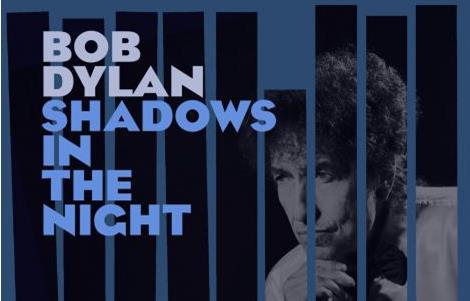I suppose it didn’t actually have to happen, but to me it seems just right: Bob Dylan has announced the upcoming (Feb. 3, 2015) release of a new album of songs performed in the past by Frank Sinatra. As the (reluctant) voice of the ’60s generation, a group whom Sinatra famously (or notoriously, depending on your point of view) derided at the time, it may seem incongruous for Dylan to create anything that could be considered a tribute to Sinatra.
Yet it makes great sense. Dylan was always much more complex and nuanced a thinker than the critics and popular media of the 1960s realized, as they pigeonholed him as a political person and a leftist, neither which appears to have been true of him. Moreover, whereas Dylan was the great vocal innovator of the 1960s, Sinatra was the great vocal innovator of the postwar era.
Sinatra’s use of unexpected pauses and altered notes (deliberately going flat on a note, for example, to give the sung word emphasis, for example) transformed popular music and paved the way for the experimentation and further innovations that would follow in both pop and rock music in the 1950s and ’60s. No one, however, ever brought more skill and intelligence to that process than Sinatra.
Dylan, for his part, brought an earthy sincerity to the fore, and his influence was probably as great as Sinatra’s. Far from caring only about lyrics, Dylan had an evident love for a wide variety of kinds of music, experimented as much as his audience would permit, and brought to the rock world a vocal expressiveness that was the equal of Sinatra’s, though so very different in its effect.
The bobdylan.com news item about the album, titled Shadows in the Night, notes that the arrangements use conventional rock-style instrumentation, not the big-band arrangements of the originals, and the recordings were done in the manner Sinatra recorded, and as Dylan did for many of his albums: largely live in the studio, without overdubs. The release quotes Dylan as follows:
I’ve wanted to do something like this for a long time but was never brave enough to approach 30-piece complicated arrangements and refine them down for a 5-piece band. That’s the key to all these performances. We knew these songs extremely well. It was all done live. Maybe one or two takes. No overdubbing. No vocal booths. No headphones. No separate tracking, and, for the most part, mixed as it was recorded. I don’t see myself as covering these songs in any way. They’ve been covered enough. Buried, as a matter a fact. What me and my band are basically doing is uncovering them. Lifting them out of the grave and bringing them into the light of day.
Interestingly, Dylan did not choose songs most closely associated with Sinatra, but there’s a clear emphasis on the sadder side of Sinatra’s performances and the sense of him as a “saloon singer,” which is how Sinatra characterized himself. Here’s the song lineup:
1. I’m A Fool To Want You
2. The Night We Called It A Day
3. Stay With Me
4. Autumn Leaves
5. Why Try to Change Me Now
6. Some Enchanted Evening
7. Full Moon And Empty Arms
8. Where Are You?
9. What’ll I Do
10. That Lucky Old Sun
It’s also fitting that Dylan is releasing the album on Columbia Records, for whom Sinatra recorded in his early years as a solo vocal star on up through 1958, when he was reaching toward his artistic prime.
Given the choices Dylan has made and the talents involved, I’m looking forward to Shadows in the Night, even though Dylan’s voice is no longer at its best. For both Dylan and Sinatra, the beauty of their music has always resided in the intelligence and understanding they brought to their art.



Great comment and excellent observations, Larry. I think that rock music critics, perhaps because their real interest is in writing, have a tendency to get stuck on lyrics and insufficiently appreciate complex or subtly innovative music. Dylan has always been a true musician and clearly had an immense knowledge of the history of his art form. And thanks for reminding me of his appearance at the Sinatra party. I admire Dylan’s work greatly.
Great article Sam. Dylan has always been a Sinatra fan and played at his televised 80th birthday party. The fact that Dylan is ‘uncovering’ Sinatra in the 52nd (!) year of his musical career does seem exactly right.
You’re also right that the diversity of Dylan’s music has been under-appreciated compared to his lyrics. He has been making bold and innovative musical choices for a long time. The breadth, depth and diversity of his musical output may be unparalleled in pop music history, although some would argue Duke Ellington and Miles Davis give him a run for his money (although Dylan isn’t done yet).
And anyone who still thinks of him as a ‘protest singer’ either stopped paying attention in 1964 or needs to listen to “My Back Pages” again.